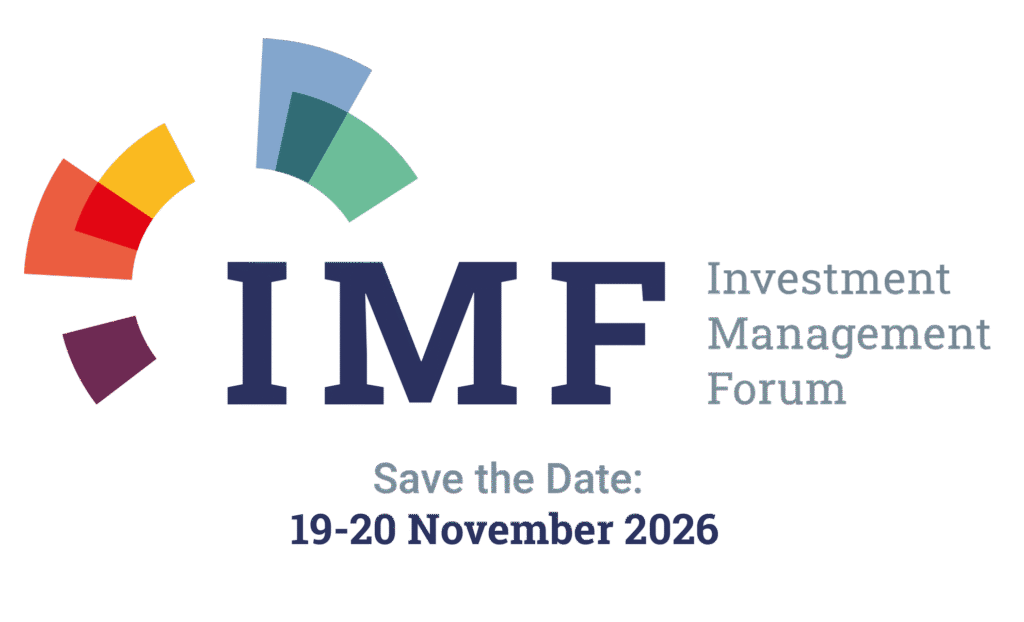
System Maintenance Notice
Please note that today, Friday 24 October, the registration system is undergoing essential maintenance and is temporarily unavailable.
We apologise for any inconvenience this may cause and appreciate your understanding.
If you have any questions or require assistance, please contact Karolina Stankiewicz at efama@forum-europe.com or
+44 (0) 7845 645853
We look forward to welcoming you to the event very soon.
The Investment Management Forum, EFAMA’s flagship event, returned again for its 31st year. This edition took place on the 6-7 November 2025, in person, at the Chancellerie Auditorium of BNP Paribas Fortis in Brussels.
This event provided a premier platform for industry professionals, policymakers, regulators, and supervisors to meet, discuss, and debate the challenges and opportunities ahead.
Register for your place at the conference today!
Below you can find the IMF 2025 video and picture highlights.
You can view more from the previous edition by visiting our 2024 webpage.
Take a look at some highlight photographs from this year’s event.
You can view further post event materials by clicking the button below.









Samantha Ricciardi is CEO of Santander Asset Management since February 2022.
Samantha joined Santander Asset Management from BlackRock, where she had spent around 12 years in senior positions, most recently as Head of Strategic Coverage and Business development for EMEA. Prior to taking on that role in 2021, Samantha had spent seven years as the company’s Country Head of Mexico, a country for which she had previously been Head of Sales.
Prior to joining BlackRock in 2010, Samantha was the Mexico Country Head for Schroders, a company she joined in 2003 as a relationship manager GFIG in London. Samantha Ricciardi began her career working for Citi in London, where she was Head of EMEA Fund Selection.
Samantha is a member of the Boards of FCC Servicios Medio Ambiente Holding and Rassini.
Samantha Ricciardi holds a degree in International Relations from Instituto Tecnológico Autónomo de México (ITAM) and a Master’s degree from the London School of Economics (LSE).
Samantha is committed to diversity and inclusion and as such is a founding member of Mujeres en Finanzas (MeF) an organisation that promotes the development of women in LatAm.

Jonathan Cleborne, CFA, is Managing Director for Vanguard Europe, responsible for leading the operations and distribution efforts of the European business. Mr. Cleborne relocated to London from Vanguard’s global headquarters in the United
States in 2024.
Prior to this role, Mr. Cleborne was head of Personal Investor Advice leading a team that provides Vanguard’s U.S. clients with ongoing asset management and investment advice consultations with Certified Financial Planner™ professionals through Vanguard’s Personal Advisor offers. Mr. Cleborne and his team were also responsible for Vanguard Digital Advisor®. Collectively, the team stewarded over $300B on behalf of individual investors and 401(k) plan participants. Since joining Vanguard over 20 years ago, Mr. Cleborne has held a variety of roles in Personal Investor, Financial Advisor Services, Corporate Strategy, and the Investment Strategy Group. He was also the global head of Vanguard Portfolio Review Department, which oversees Vanguard’s 400-plus mutual funds, ETFs, and their advisors. The department is also responsible for developing the optimal fund lineup for investors, analyzing the health, usage, and competitive landscape of Vanguard’s funds and ETFs and serving as specialized product experts.
Mr. Cleborne earned a B.A. from the University of Virginia and an M.B.A. from the Tuck School of Business at Dartmouth. He is a CFA® charterholder and a member of the CFA Society of the United Kingdom.

Marie Jacot joined Edmond de Rothschild Asset Management in November 2020 as Global Head of Distribution. She was appointed CEO Edmond de Rothschild AM (France) in March 2022.
Marie Jacot has spent most of her career with Goldman Sachs. She joined the bank in 2004 as a corporate treasury analyst before being promoted to executive director in the investment bank. She joined the Group’s Asset Management division in 2008 where she helped develop the Global Liquidity Management business. She was in charge notably of promoting short duration strategies in Switzerland, Benelux, France and the Middle East.
She then headed up distribution of alternative strategies in Europe and in Asia ex Japan, and then all investment products in Germany and Austria. She was subsequently appointed head of distribution for France, Belgium and Luxembourg. In November 2020, she joined Edmond de Rothschild Asset Management as Global Head of Distribution.
Marie Jacot is a graduate of Sciences-Po Paris and holds a Masters in Economics from the Paris Panthéon-Sorbonne university.

Nicolas Calcoen is Deputy CEO, Head of the Strategy, Finance and Control Division at Amundi since 1st April 2022 and a member of its Executive Committee. He is in charge of Strategy, Finance and Control Division (Public and regulatory affairs, Human Ressources, Conformity, Risks, Audit, Legal, Security, Governance and Social Life).
He was until March 2022, Deputy General Manager Finance, Strategy and Public Affairs.
Before joining Amundi in 2010, Nicolas Calcoen worked in the public financial administration, both at national and international levels. He held various positions within the French Ministry of Finance, worked as an economist at the International Monetary Fund in Washington, DC from 2002 to 2005, and, after relocating to France, became deputy director of the office of the French Minister for the Budget, Public Accounts, Civil Service and State Reform in 2007.
A French national, Mr Calcoen graduated from the Ecole Nationale d’Administration (ENA). He is also a graduate of the Institut d’Etudes Politiques in Paris (1992) and holds a DEA post-graduate diploma in Economics and International Finance from the Institut d’Etudes Politiques in Paris (1994).

Natasha Cazenave has been Executive Director of ESMA since 1 June 2021.
Before taking up her current role she was Managing Director, Head of the Policy and International Affairs Directorate at the French Autorité des Marchés Financiers (AMF), where she worked for over 10 years in various roles.
During that period, at the international level, she was elected twice chair of IOSCO’s Policy Committee on investment management in 2012 and 2014. In February 2015, she was appointed co-Chair of the Financial Stability Board’s experts group on shadow banking.
Natasha Cazenave began her career at Ernst & Young Corporate Finance as part of the Valuation & Business Modelling team. She spent eight years working at Deminor, a consultancy firm specialised in the defence of minority shareholders rights, where she was in charge of collective actions for investors who suffered losses as a result of securities violations, and the promotion of best practices in the field of corporate governance. She holds a Master’s degree from the Paris Dauphine University in Banking, Finance and Insurance.
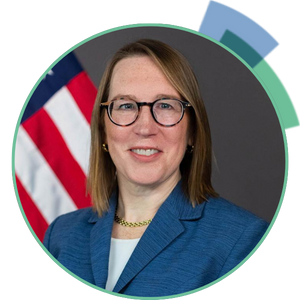
Hester M. Peirce was appointed by President Donald J. Trump to the U.S. Securities and Exchange Commission and was sworn in on January 11, 2018.
Prior to joining the SEC, Commissioner Peirce conducted research on the regulation of financial markets at the Mercatus Center at George Mason University. She was a Senior Counsel on the U.S. Senate Committee on Banking, Housing, and Urban Affairs, where she advised Ranking Member Richard Shelby and other members of the Committee on securities issues. Commissioner Peirce served as counsel to SEC Commissioner Paul S. Atkins. She also worked as a Staff Attorney in the SEC’s Division of Investment Management. Commissioner Peirce was an associate at Wilmer, Cutler & Pickering (now WilmerHale) and clerked for Judge Roger Andewelt on the Court of Federal Claims.
Commissioner Peirce earned her bachelor’s degree in Economics from Case Western Reserve University and her JD from Yale Law School.
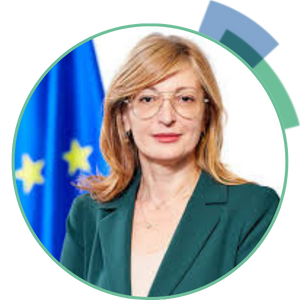
As Commissioner for Startups, Research and Innovation, Ekaterina Zaharieva’s task is to drive the EU’s ambition to put research and innovation, science and technology at the centre of our economy. She will foster investment and cooperation, creating the right conditions for researchers to thrive and develop new skills, and the innovation needed for the EU’s competitiveness, security and sustainability goals.
She is responsible for:

Gerry Cross is Director for Capital Markets and Funds at the Central Bank of Ireland. He joined the Central Bank as Director of Policy and Risk in May 2015. He is an Alternate Member of the ESMA Board of Supervisors and was up until recently a Member of the Board of Supervisors of the EBA where he co-chaired the EBA’s Regulatory Policy Standing Committee. He was also a Member of the Executive Committee of the International Association of Insurance Supervisors (IAIS) and chaired the ESAs Joint Committee Sub-Committee on DORA implementation.

Hélène Bussières is Head of the Asset Management Unit in the Directorate General on Financial Markets, Financial Stability and Capital Markets Union (FISMA) in the European Commission. She was previously deputy Head of the Asset Management Unit and deputy Head of the Securities Market Unit, working on MiFID, MAR and the Prospectus Regulation.
Prior to joining the European Commission, Hélène spent 10 years working in different capacities in the private sector, in particular on M&A projects, deal structuring and financing and companies’ listings. She graduated from Sciences Po Paris with a major in economics and finance.

Biography to follow

Jyrki Katainen is a Finnish politician and executive with extensive experience in both national and European roles. In October 2023, he joined Nordea Bank as the Head of Group Public Affairs. Prior to his role at Nordea, Katainen served as the President of The Finnish Innovation Fund Sitra, focusing on climate policy, the circular economy, and the development of a fair data economy.
Katainen’s political career includes serving as the Prime Minister of Finland from 2011 to 2014 and as Minister of Finance from 2007 to 2011. He later became the European Commission’s Vice-President for Jobs, Growth, Investment, and Competitiveness from 2014 to 2019.
At Nordea, he leads public affairs activities, engaging with policymakers and stakeholders across the Nordic region and the EU on sustainability and digitalization.

Tanya Panova is the Head of the Securities Markets Unit in DG FISMA. Previously, she has been developing the capital markets strategy as the Head of the Capital Markets Union Unit and served in the private office of Vice-President Valdis Dombrovskis where she was responsible for Capital Markets Union, securities markets, asset management, insurance, free movement of capital and competition. In her previous job, Tanya worked on aviation antitrust cases in DG COMP. Tanya is a trained economist with specialisation in financial services.
Navigating Current Geopolitical Complexities
You can download a PDF version of the agenda here
Registration and Networking Lunch
Welcome remarks

Keynote speech

CEO Panel





Fireside Chat - International Agenda


Networking Break
Savings and Investments Union – A game-changer for retail investors and for European capital markets?
Delivering an accessible, inclusive, and integrated Savings and Investments Union will require a coordinated approach across a broad range of policy areas. This panel will explore how initiatives such as the European blueprint for Savings and Investment Accounts, a renewed focus on pensions, as well as broader efforts to simplify the investor’s journey and improve financial literacy, can help foster a stronger investment culture, empowering individuals to invest with more confidence.



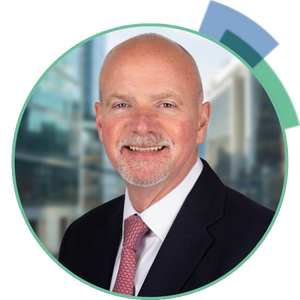

Keynote speech

Consolidation, Scale and Competitiveness: which policies will power the next phase of growth for the EU’s capital markets?
This panel will discuss the state of EU capital markets from a global competitiveness, investor access, and capital formation perspective. Competitiveness is achieved through market forces, but are there remaining regulatory barriers in the Single Market that impede scale and perpetuate fragmentation? Or is the focus better placed on market structure rules to encourage greater transparency, market efficiencies and value for the end-investor? The EC’s 2025 Savings & Investments Union Action Plan reviews the regulatory framework governing trading and post-trading infrastructures. Panelists will guide us through the proposed reforms and provide their unique perspective as participants in European capital markets.



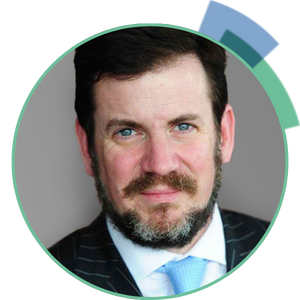
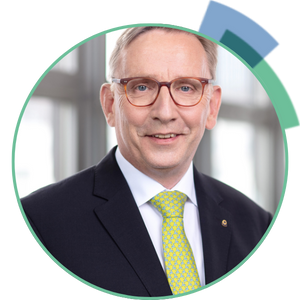
Cocktail Reception for all participants
Welcome Coffee
Welcome Day 2

Keynote Speech

The Sustainability Sweet Spot: Balancing Business, Data and Corporate Responsibility?
This panel will discuss the European Commission’s recent Omnibus proposal, which aims to simplify sustainability reporting. Experts will address the critical challenge of ensuring that these simplifications enhance competitiveness while still enabling asset management to contribute to long-term climate and environmental goals. The session will explore how to strike the right balance between fostering innovation and understanding the implications of these changes for the broader EU sustainable finance framework.





Networking Break
Presentation on Tokenisation

Better regulation and supervision: how to improve the EU’s decision-making process?
This panel will discuss the structural inefficiencies, lack of agility, and overlapping mandates that often hamper the EU’s financial regulatory and supervisory framework. Despite good intentions, the decision-making process in Brussels is frequently criticized for being too slow, complex, and unresponsive to market realities. Panelists will explore how to strike the right balance between political oversight, technical expertise, and industry input, while ensuring better coordination among EU institutions, national regulators, and supervisory bodies. The session will also examine how to streamline legislative processes, improve the quality and impact assessments of new rules, and create a regulatory environment that fosters innovation, competitiveness, and investor trust.




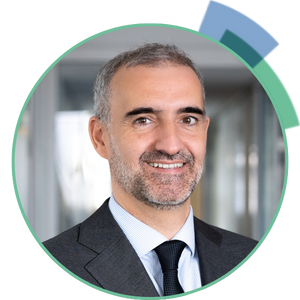
Financing the Green Transition: are we hitting the mark?
Is the fund industry mobilising enough private capital for sustainable development? The panel will discuss its role in the green transition, with a particular focus on new and innovative financing solutions, such as blended finance and impact investing. The panel aims to understand whether our industry’s efforts are sufficient vis-à-vis diverging global policy actions and current geopolitical challenges





Concluding Remarks

Networking Lunch
Sponsored By

 Morningstar, Inc.
Morningstar, Inc. Morningstar, Inc. is a leading provider of independent investment insights in North America, Europe, Australia, and Asia. The Company offers an extensive line of products and services for individual investors, financial advisors, asset managers and owners, retirement plan providers and sponsors, institutional investors in the debt and private capital markets, and alliances and redistributors. Morningstar provides data and research insights on a wide range of investment offerings, including managed investment products, publicly listed companies, private capital markets, debt securities, and real-time global market data. Morningstar also offers investment management services through its investment advisory subsidiaries, with approximately $341 billion in AUMA as of March 31, 2025. The Company operates through wholly-owned subsidiaries in 32 countries.

 Simmons & Simmons
Simmons & Simmons We’re not just a law firm. We’re part of the industry. We provide a complete range of legal services and advice to clients across the world of asset management. Our immersion in the sector enables us to go beyond technical legal guidance, delivering rounded, actionable strategic advice.

 Waystone
Waystone Waystone leads the way in specialist services for the asset management industry.
Partnering institutional investors, investment funds and asset managers, Waystone builds, supports and protects investment structures and strategies worldwide. With over 20 years’ experience and a comprehensive range of specialist services to its name, Waystone is now serving assets under management in excess of $2Tn.
Waystone provides its clients with the guidance and tools to allow them to focus on managing their investment goals with confidence.
Address: Rue de la Chancellerie 1, 1000 Bruxelles
If you are driving to the venue, the closest car park is Interparking Albertina, using the entrance located on rue des Sols.
This car park is a 3 minute walk from the conference venue, crossing the Ravenstein Gallery
Note: Accommodation has not been booked for you. Hotels are subject to availability and best available rate at the time of booking.
Address: Rue Marche aux Herbes, Rue du Marché Aux Herbes 110, 1000 Bruxelles, Belgium
Approximately 5 minute walk from the event venue
Address: Grasmarkt, Rue du Marché Aux Herbes 100, 1000 Bruxelles, Belgium
Approximately 5 minute walk to the event venue
Address: Stormstraat 15, 1000 Brussel, Belgium
Approximately 4 minutes walk from the event venue
Address: Rue du Marché Aux Herbes, Brussels, Belgium
Approximately 7 minute walk to the event venue
Address: Rue de l’Amigo 1-3, 1000 Brussels
Approximately 11 minute walk to the event venue
Address: Carrefour de l’Europe 3, 1000 Brussels
Approximately 5 minute walk to the event venue
Address: Rue du Marché aux Herbes, 1000 Brussels
Approximately 7 minute walk to the event venue
Address: Boulevard de Waterloo 38, 1000 Brussels
Approximately 16 minute walk to the event venue
If you have any questions or you are interested in finding out more about the sponsorship opportunities available, please contact Miriam Brunson, EFAMA at info@efama.org
For more information on event logistics for IMF, please contact us using efama@forum-europe.com